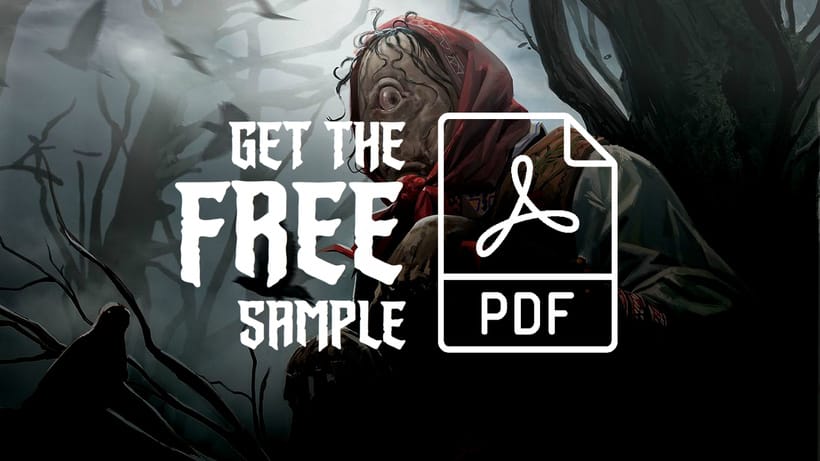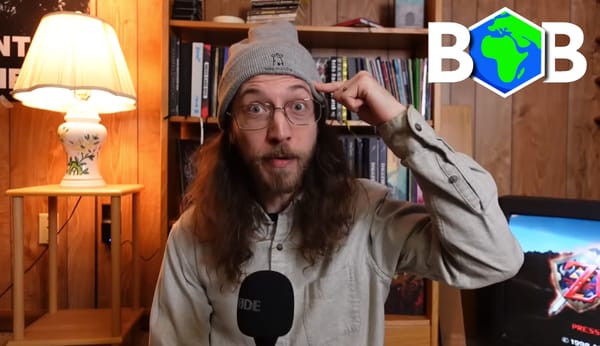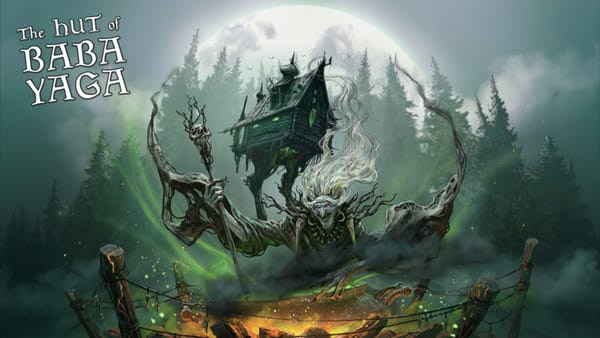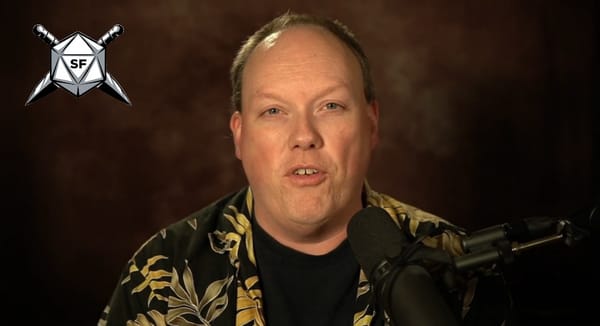Book of Spirits: Behind the Scenes of a Kickstarter Breakout
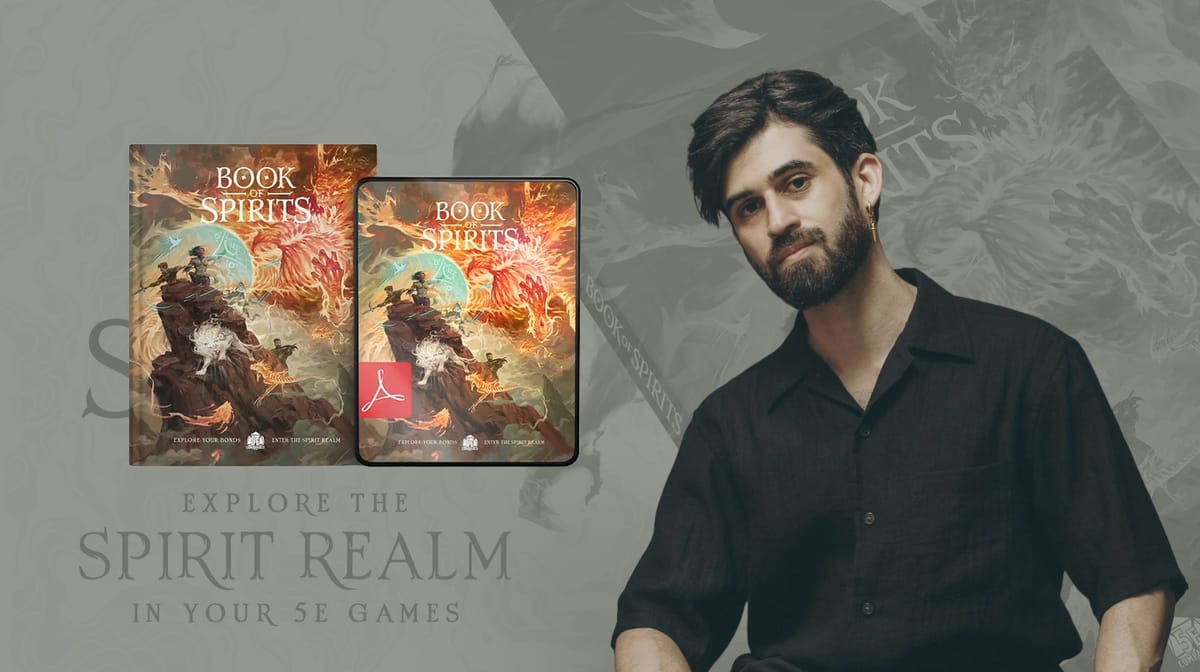
It all started with a pamphlet and a dragon. At just seven years old, Aviad Tal stumbled into the world of tabletop RPGs and never looked back.
Decades later, after leaving behind a career in tech and betting everything on his passion, he turned Beyond the Screen from a side project into a growing studio with a thriving community and one of the most emotionally rich fantasy settings in recent memory.
In this exclusive RPGDrop interview, Aviad opens up about the magic system behind Elanor, how Book of Spirits became a breakout hit on Kickstarter, and why he believes indie success still comes down to two things: listening to your players and staying true to your vision.
Whether you’re building your first homebrew, launching a crowdfunding campaign, or exploring the ethics of AI in creative work this one’s for you.
Read the full interview below!
How did your journey with tabletop RPGs begin, and what inspired you to create Beyond the Screen?
It all began with a pamphlet I found when I was seven. I remember running back home triumphantly, showing my parents the adorable dragon artwork and begging them to let me join. My first character was an edgy rogue assassin who got orphaned and sought revenge.
You know the deal. That was more than 20 years ago. Along the way I've picked up GMing in a variety of systems, and even created homebrews for Naruto and Fairy Tale (my teenage friends and I were, and still are, huge anime fans).
For the longest time, going pro didn't even occur to me. I was pursuing a career in tech because that's what the world expected of me, but I've reached a breaking point after a while, and from my sorrow and confusion that idea was born.
What if I could do this professionally? I kept a part-time job and uploaded videos to YouTube, opened up a Patreon for D&D homebrew, and threw myself at it with all I had. Several years and a couple dozen self-published PDFs later, I got offered a freelance job with Hachette Partworks's collab with Wizards of the Coast designing D&D Adventurer magazine (available in the UK!).
Around that time, I also gathered enough content and experience from monthly Patreon publications to curate something much more refined, and that's how Book of Spirits came to be. The community loved it, and made it a huge success on Kickstarter. I am very proud and fortunate to be developing it full time.
What was the initial concept behind the world of Elanor, and how did it evolve into full-fledged campaigns and supplements?
In Elanor, emotions and memories have their own magic. When sentient creatures experience intense emotions, they conjure ethereal entities known as animar. A child imagining monsters in their closet might create a fear animar, and a city guard who resolutely stands up to a cutthroat thug could conjure an animar of valor.
We've spent a lot of time extrapolating on that one idea, figuring out how the presence of these creatures affects the world. Cultures are often defined by their relationship with animar, leading to many conflicting ideologies. Emotional residues of long forgotten cataclysms still reverberate in the Everlast (the Spirit Realm), shaping the physical world in turn.
Heroes have to deal with their darkest memories made manifest, providing ample opportunity for rich storytelling and character growth. With every supplement we published we tried to explore another aspect of the world, be it a region, a culture, or supernatural phenomena that bring the world of men and spirit together.
Could you tell us about the creative philosophy behind Beyond the Screen? What sets your work apart?
Our inspirations serve as our guiding light, and we always return to them when we feel lost. We are proudly inspired by titles like Dragon Age, Stormlight Archive, Arcane, Avatar: the Last Airbender, Inside Out, and so many others. In understanding what makes these settings great, we hope to echo that greatness in our own design, creating something brand new in the process.
Book of Spirits was a hugely successful campaign. What do you think were the key elements that contributed to its success?
We are extremely fortunate to have had such a stellar debut. I can't say for certain, but I think it was a mix of a very clear pitch, cohesive art direction, and good understanding of our audience. We've studied dozens of D&D Kickstarters in the years prior to our launch, so when the time came to design our own, we had lots of successful projects to compare to.
How did you prepare your audience and email list before launching the Kickstarter?
I think releasing the various iterations of the Conduit class really helped. We spent a while refining and testing that class, and with every release the community pointed out flaws that we then fixed on the following versions. I think that earned us a lot of trust as a studio that listens and cares about quality.
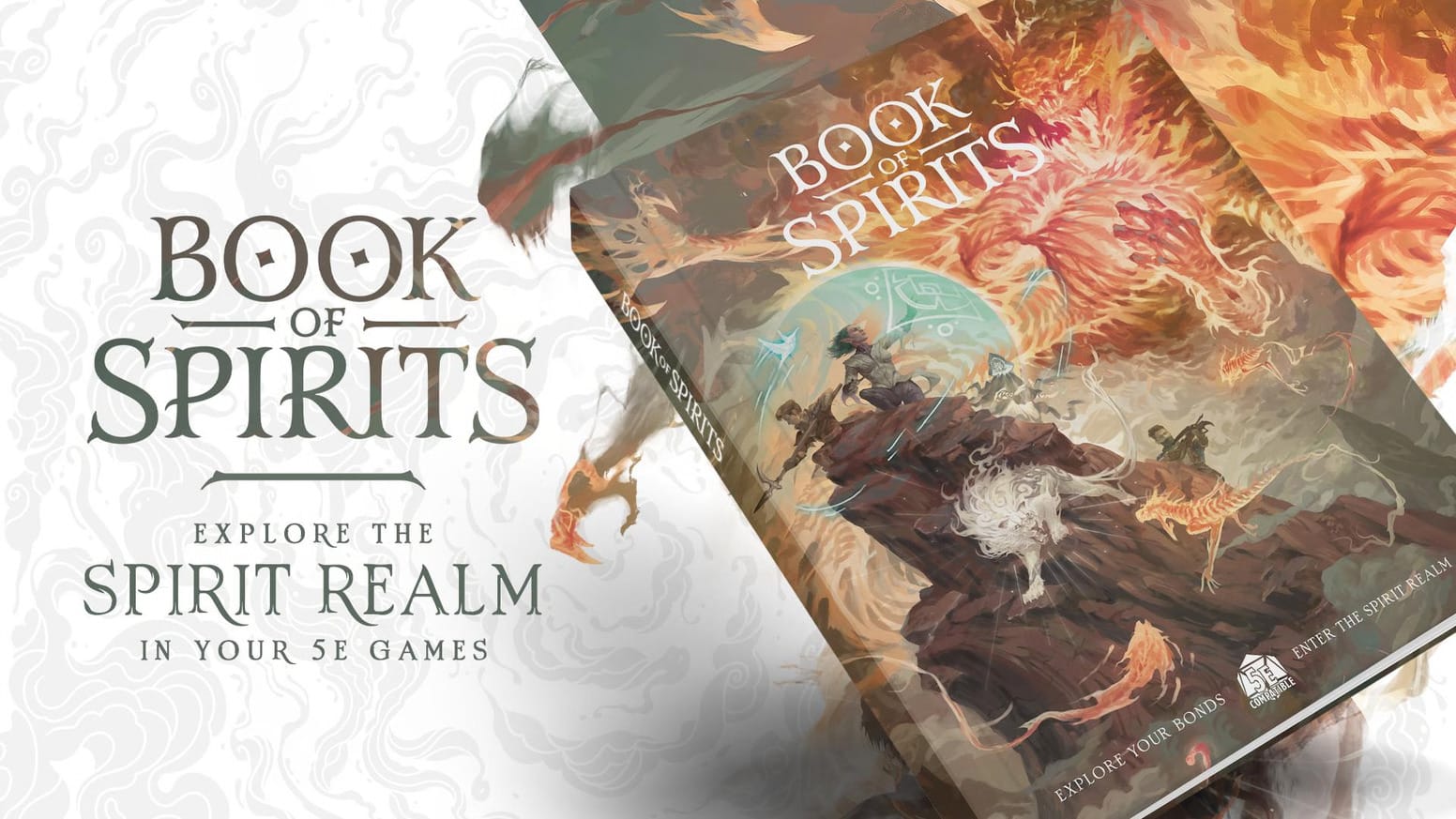
What marketing strategies worked best for you during the campaign? (social media, paid ads, influencer outreach?)
Even today we are a relatively obscure studio, and we were practically invisible before Book of Spirits. So for us, paid ads have been the most powerful tool by a margin. Building up almost 2,000 followers on the prelaunch page made for a very effective launch, and the ads that kept running throughout our campaign brought in most of the backers.
We've also invested in YouTube sponsorships, which paid off and really helped bring attention to the project. Beyond that, we partnered with Dragon's Trapper Lodge, Darkest Maps, and others to create the campaign's rewards, and that helped us reach their passionate audiences.
Did you use any specific paid ad platforms (Facebook, Instagram, Google) during your campaign? What were the results?
Facebook and Instagram ads (managed by BackerKit) worked best. The team at BackerKit helped us maintain a good ROAS throughout the campaign, and we are grateful for their collaboration! We used Google ads too, but those brought only a few backers.
How did you structure your Kickstarter updates and stretch goals to keep backers engaged throughout the campaign?
I must admit we sort of winged that part. I got excited and published another PDF sample a week or so into the campaign, but otherwise we just shared more art and hype every few days.
Stretch goals were planned a little better, and we've made sure we have a healthy mix of physical items and content upgrades.
I do have one tip for stretch goals: take the most exciting stretch goal you can think of and hold onto it until the final days of the campaign, then announce it. We did that with the Empath class and people were really hyped!
What would you do differently in your next crowdfunding campaign based on the lessons from Book of Spirits?
Launching Book of Spirits was probably the scariest thing I've done. I went with my gut and invested significant funds and countless hours into getting every aspect of this project polished until it felt right. I was still stressed that it wouldn't be enough, but it was something I could admire, and I think that made a difference.
I'd like to preserve that feeling. Both of them, actually. I want to be afraid because that shows I care, and I want to admire the work I contribute to because that's the best indicator I've got that others will feel the same.
On a more practical level, I think I'd like to plan the campaign updates better so that there's a new drop of content every few days. I would also like to invest more energy in the pre-launch phase; really plan out how to hype everyone for it.
How did you build and maintain a loyal community around Beyond the Screen?
By showing up, listening to our backers and playtesters, delivering on our promises, and taking accountability when we don't hit our goals. I'm not very active on socials, but I think that people remember this reputation when it matters.
What channels (Discord, Reddit, YouTube, etc.) have been the most effective for engaging with your audience?
We don't publish on YouTube much anymore. Reddit was quite big for us, and our Discord server is still active with people excited for the content! We also have Facebook and Instagram, which had some engagement prior and during the campaign, but I'm not doing a great job at maintaining them right now, hahaha.
Do you involve your community in the creative process (e.g. playtests, feedback, naming content)?
Yes! We had a community playtest with over 500 sign-ups! And even beforehand the Conduit class got reviewed on Reddit and had several iterations. The responses were truly helpful in improving our designs. I want to do more of that in the future.
How do you balance creative vision with the feedback and expectations of your fans?
By putting myself in their shoes and seeing where they come from. I'm always looking for patterns in comments so I can mark certain features/rules for further assessment. I don't always change things in the ways playtesters suggest, but I always pay attention to what they experienced and felt. Then I go and try to remedy that during revisions, but I do that with my creative vision.
What’s your perspective on using AI tools (like ChatGPT, Midjourney, etc.) in the creative process for TTRPGs?
That's a loaded topic. Even if we put the ethical implications aside, I don't believe that AI can produce something that I'll value as much as a human-made thing. It can be a tool that is part of one's process, perhaps, but I firmly believe that the best works of fiction we'll see in years to come will always demand a human touch.
Even though there are aspects of this technology I admire, I find its use in the professional sphere immoral for two reasons; the first is the way these AI models are trained (plagiarism) and second is their environmental implications (as polluting as a small country, and it's going to get worse).
Our studio does not use it in our professional work, and until a moral alternative emerges, we will not reconsider.
Have you used AI in any of your projects—either for writing, worldbuilding, or art exploration? If so, in what way?
We do not use AI in our professional projects.
Do you see AI as a tool that empowers indie creators—or as a threat to artistic originality?
AI can make it easier for people to get started, and I see its value when it comes to brainstorming (even bad ideas can direct you towards a good one), but it does not grant one the knowledge or experience that is required to create good art. I don't see it as a threat.
Beyond the Screen is a small studio—how do you manage everything from writing and design to promotion and fulfillment?
The answer may not surprise you. We're not as small as we used to be! The campaign funding means we were able to delegate much of the work to freelancers, and I'm proud to share that there are several dozen of them working on the book.
Most of them are illustrators, but also a handful of game designers, graphic designers, developers, and editors. Managing everything still takes a lot of effort and attention, but as we are growing and gearing towards future projects, we'll be delegating some aspects of management as well!
What does a typical production timeline look like for one of your books or modules?
In the past, when we created fast-paced PDFs we had to cram it all within a month's work. We'd start with a brainstorming meeting followed by a couple of weeks of writing and design, followed by roughly ten days of editing and testing, and a few days for layout and publishing.
That worked for a few years, but the scale of these PDFs was tiny, about two dozen pages on average. With Book of Spirits we've had to change our approach, and we're still learning. Getting all the art took months, and we've had several iterations of development and testing for the game content we designed.
It took us more than a year to finalize the text and art for the book, more than we had originally anticipated. Now we are getting into layout, however. Our estimate for that is a month, followed by proofing which will take a couple more weeks before we can share the PDF with the backers.
Once that's wrapped, we will move on to work with our printer on the hard covers.
How do you choose which ideas are worth turning into a full product or campaign?
We know which fandoms we are tapping into. If we believe our ideas could be inspiring these audiences, they are worth considering for crowdfunding. Other than that, we do a lot of research on all other crowdfunding projects, trying to get a sense for why some succeed more than others.
Nothing I can write here is as important as developing that sense and following through on it.
What advice would you give to indie creators launching their first TTRPG Kickstarter in 2025?
Create a document with at least twenty crowdfunding campaigns from the past two-three years and study them with obsession. Don't pick just the obviously successful ones, find campaigns that have barely hit their goal too.
Which campaigns should have done better but didn't? Which campaigns did remarkably well despite lacking some things you think are important? What do all the successful campaigns have in common?
What could some of them have done to succeed more? After you've developed that gut feeling, keep an eye on every new campaign and try to estimate right from the start how well it will do.
See what you appreciate about their marketing and campaign page, how many prelaunch followers they have before they start, and where did they actually end up in terms of funding.
There's so much more to say on the subject (I've been hired as a paid consultant, so I can really talk about this for hours) but developing your gut is one of the most important first steps.
You'll need it to determine if your pitch aligns with other successful projects, and whether or not it has the potential to hit the same goals they have.
Thanks Avid!
This post is presented in partnership with Strigovia.
Strigovia is a dark, Slavic-inspired tabletop RPG where what we call “magic” is not a gift, but a debt owed to the ancient Forest — a power that listens, remembers, and always collects. There are no carefree spells or heroic fireballs here, only whispered rituals, blood-bound bargains, and slow transformations waiting for those who ask for too much.
This is low-fantasy horror focused on survival, painful choices, and stories that linger long after the dice stop rolling.
